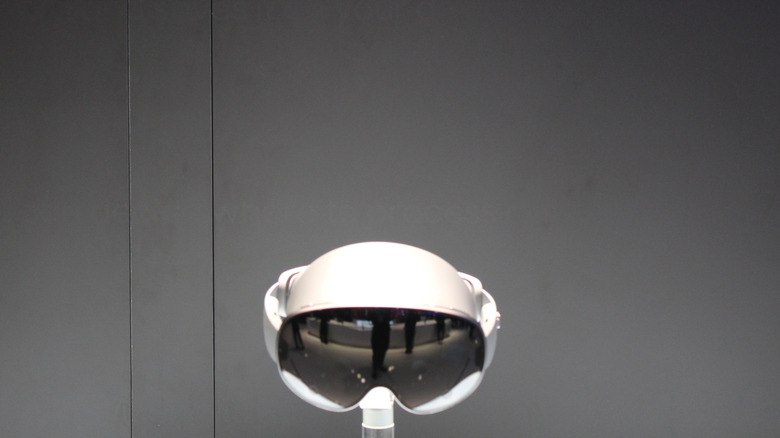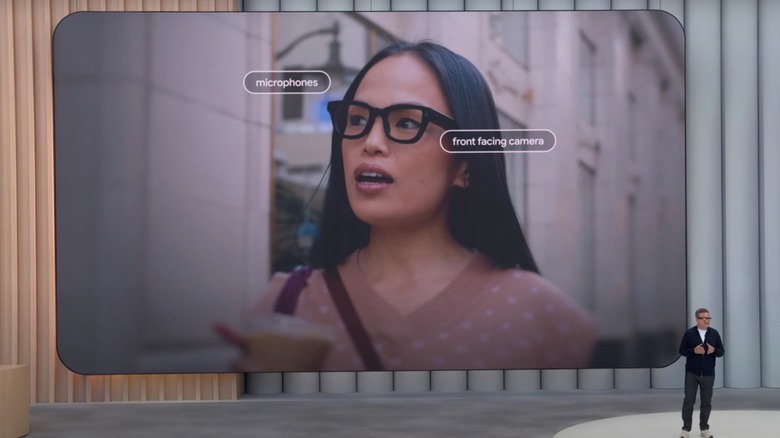Samsung Is Reportedly Preparing Its Own AI-Powered Smart Glasses For Late 2026
Samsung's mobile arm launched the Galaxy Z Fold 7 and Galaxy Z Flip 7 foldable phones a few weeks ago, but the company isn't done with new product reveals this year. Samsung is expected to unveil a trifold Galaxy phone this fall and two head-mounted devices. Teased last year, Project Moohan (seen above) will be Samsung's first-generation rival for Apple's Vision Pro spatial computer. The device will run on Google's Android XR platform. Samsung and Google will also launch a pair of AI smart glasses with augmented reality (AR) abilities this fall. The product was demoed at Google I/O 2025 in May (seen below) and will run on the same Android XR platform.
A new report from Korea claims that Samsung is also working on a standalone pair of AI smart glasses of its own that will launch in late 2026. This glasses are unrelated to Samsung's partnership with Google, and don't feature a built-in display. Instead, the product will work more like the Ray-Ban Meta smart glasses, which feature cameras, microphones, and speakers for AI interaction.
The standalone product would allow Samsung to position itself better in the post-smartphone era that will see computing experiences move to smart glasses with the help of AI. Like other tech giants, Samsung has made significant investments in AI in recent years. The company launched its Galaxy AI platform in early 2024, with the Galaxy S24 series being the first phones to run it.
Samsung's big plans for the post-smartphone era
According to Korean-language media outlet SEDaily, Samsung's unnamed AI smart glasses will include features similar to the Ray-Ban Meta smart glasses, including a speaker, microphone, and camera. The lack of a display implies the glasses won't be able to offer advanced AR features like the Google-Samsung glasses hitting the market later this year.
However, AI-only smart glasses are still useful to users, considering the abilities of generative AI software. Products like ChatGPT, Gemini, and Meta AI can support multimodal input. That means the AI can understand images, videos, and voice in addition to text input. AI smart glasses would leverage those capabilities to offer users immediate AI assistance, though the AI would likely run on a nearby smartphone.
Google's Android XR platform is also built around AI, with the Google-Samsung glasses set to feature built-in Gemini support. The Project Moohan headset will also run Google's Gemini. With the standalone AI smart glasses, Samsung aims to capture a share of the market on its own, rather than being completely tied to Google.
The report notes that Samsung believes smart glasses can be the next big thing after smartphones. The Korean giant isn't the only company to prepare for the emerging post-smartphone era. Apple is also reportedly working on its own smart glasses experiences, including AI-only products and AR glasses that might one day replace the iPhone.
Can Samsung's AI smart glasses stand out?
The report doesn't offer specifics about Samsung's standalone AI smart glasses. It's unclear how they'll be different from the Google-Samsung device, other than lacking a display. Also, it's unclear what underlying software the glasses will run. Samsung might use Google's Android XR platform, much like it uses Android for its Galaxy smartphones. Thus, Samsung and Google would be both partners and competitors in the smart glasses market, just like in the phone business.
Speculation aside, Samsung has every reason to make its own AI smart glasses in the near future. SEDaily mentions that recent estimates from market research firm Fortune Business Insights see the smart glasses sector grow from $253 million to $1.6 billion by 2032. Early entry could ensure Samsung gets a sizeable share of that business.
Interestingly, late 2026 might bring another product that will compete directly against AI-only and AI/AR smart glasses. OpenAI is expected to unveil its first ChatGPT hardware product late next year. The device isn't a smartphone or a pair of glasses, but it should offer multimodal AI experiences similar to the Ray-Ban Meta AI glasses. As for Meta, the company is also moving forward with its own plans for bringing Meta AI to more hardware, having unveiled an Oakley-branded pair of AI glasses recently.


